Pádraig Ó Tuama's Blog
January 16, 2022
Conflict, Climate and Poetry - a writing residency in New York City
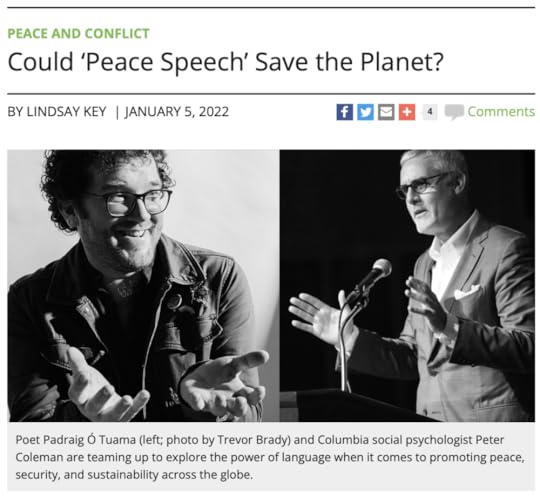
From October 2021 to May 2022, I’m doing a writing residency in New York City, with the Morton Deutsch Centre for Cooperation and Conflict Resolution at Teachers College, Columbia.
This project will culminate in compiling a poetry anthology of poems that are intelligent about conflict. Taking 35 contemporary poems, I will draw links between these poems’ intuition and conflict theory.
You can read more about the project here.
July 17, 2020
Weekly Pause with Humanity United
John Paul Lederach and the good people at Humanity United produce a weekly video called The Weekly Pause offering space for their colleagues to reflect on a poem and take time to breathe during demanding schedules. I was thrilled to offer a reflection on Rafiq Kathwari’s brilliant poem ‘On Receiving Father at JFK After His Long Flight From Kashmir’, from his book In Another Country published by Doire Press.
You can access the video by clicking here.
April 9, 2020
Stations of the Cross, Good Friday, 2020.
I have loved the Stations of the Cross for many years. The Stations are a series of fourteen images (or sometimes, crosses) around the body of a Church, each marking a particular moment during the last hours of the life of Jesus of Nazareth.
Here is a 20 minute video for your reflection. I didn’t put any music with it — because of copyright issues. and also because of a profound lack of skill — so it is silent, except for a voice.
All images are photographs I’ve taken over the years. The Collects and the poem ‘Go to Hell’ are both published by Canterbury Press (2017 & 2013).
February 6, 2020
Thought for the Day, BBC Radio 4
For the last few days, there’s been confusion in the United States regarding the numbers from the Iowa Democratic Caucus. Because of a failure of the technology used to count votes, the outcome was uncertain, causing a certain amount of mayhem, and leading Donald Trump to tweet that he — and not a Democratic Party nominee — was the winner of the caucus.
Numbers have ruled the last few years of UK political life too: whether the 52% of Brexit voters or the 45% of Scottish independence voters, we are all attuned to how power and majority go hand in hand. Numbers matter in politics — you want your numbers to win a majority. That’s what democracy is, and it’s right. But it’s not where democracy stops.
In Biblical Hebrew the word Rav is translated as Majority, but it can also be translated as Great, or Crowd or Numerous, or Mighty; words of power. By contrast, the word Mat can be translated as Few, or Lesser, or sometimes the word is translated as Mortal or even Dying.
These days it seems like our political and civic life is played out in games of the majority against the minority, or the mighty against the dying. If it’s a simple matter of Might Rules, then we seem condemned to endless cycles of predictable patterns; what Eugene O’Neill foresaw when he wrote: There is no present or future—only the past, happening over and over again.
Democracy, however, does propose additional ways to think about numbers. Great moments of human progress have been enacted because someone thought differently about numbers and their power.
— Sometimes that has meant that the majority reach across the political aisle and lead the way in some kind of consensus model of powersharing that is for the benefit of all, and not merely for the benefit of the majority.
— Other times it has meant that majority changes because of the rights of a minority who have been treated inexcusably.
It’s a dream, I know: for so many, the point of winning is to have all the power.
But there must be another way because we’re stuck with each other, and no matter who is winning, they share space with people on the other side. So we need to find something to add to the equation of winners take all.
There’s an Irish saying — ar scáth a chéile a mhaireas na daoine — it is in the shelter of each other that the people live.
The word “scáth” — translating as shelter — can also mean shadow. So this old saying isn’t as comforting as it seems; it’s more of a warning. Will we provide shelter to each other? or will we keep some people in our shadow? It depends on who is counting, and how we exercise power.
May 31, 2019
Sam's House - an essay in Image Journal (issue #100)

Photo of Holden Village from their website.
Last summer, I was delighted to visit Holden Village - a retreat centre in the Cascade Mountains in the USA. While there, I — why, oh why do I do this — said that I’d do a children’s talk. Those damned things (children’s talks, not actual children) cause me more anxiety than anything else I do. Anyway, it happened.
When Image Journal wrote to ask if I’d write about friendship, I knew what I’d want to write about. I wrote an essay called “Sam’s House” which you can find on their website here.
Holden Village runs weeklong summer schools every year, with visiting faculty exploring anything from Black Holes to Poetry to Politics to Theology. Their summer 2019 listings are here.
Image Journal - a journal of arts and theology - is an extraordinary publication, celebrating its 30th year this year. You can find more about them here.
May 30, 2019
Two new poems published by Post Road Magazine
The good people of Post Road Magazine (a magazine from the English dept at Boston College in the USA) took two poems of mine for their latest edition. You can read them here.
April 10, 2019
New poem - Makebelieve
I’m thrilled to have a new poem — Makebelieve — featured on the American Academy of Poets website. With thanks to Jen Benka for featuring this poem there. This piece comes from the forthcoming collection There Is No Such Thing As The Past.
MakebelieveAnd on the first day god made something up. Then everything came along: seconds, sex and beasts and breaths and rabies; hunger, healing, lust and lust’s rejections; swarming things that swarm inside the dirt; girth and grind and grit and shit and all shit’s functions; rings inside the treetrunk and branches broken by the snow; pigs’ hearts and stars, mystery, suspense and stingrays; insects, blood and interests and death; eventually, us, with all our viruses, laments and curiosities; all our songs and made-up stories; and our songs about the stories we’ve forgotten; and all that we’ve forgotten we’ve forgotten; and to hold it all together god made time and those rhyming seasons that display decay.
March 30, 2018
Stations of the Cross - some Collects.
For years I did the Stations of the Cross every day. I find in them the hope to live courageously when everything, even your own self, fails.
In the midst of the difficulty of the time the Stations recollect, I find echoes of a life lived well, a life that was open to the surprise of the unexpected, the truth of a story. I also hear echoes of the impulses towards my own violence and blame mechanisms.
For Good Friday, I wrote some collects, to go with the Stations. Some are below. For art, I recommend the gorgeous paintings of Sieger Koder whose religious art can be found at PB&M.
These stations are included in a book, Daily Prayer from the Corrymeela Community, published by Canterbury Press.
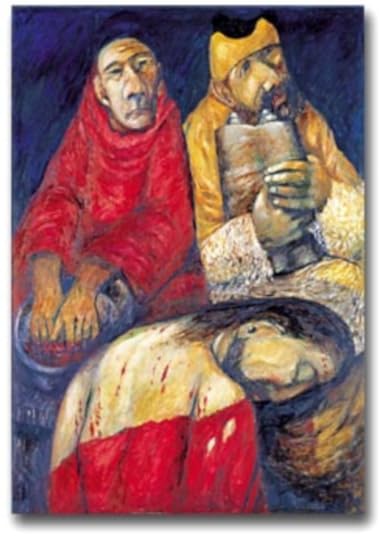
God of the accused
and the accusing,
who made the mouth, the ear and
the heart of all in conflict.
May we turn ourselves towards that
which must be heard,
because there we will hear your voice.
Amen.
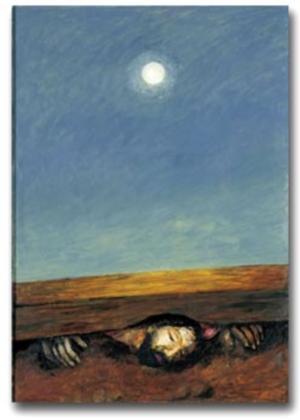
God of the ground,
whose body was - like ours - from dust,
and who fell - like we fall -to the ground.
May we find you on the ground
when we fall.
Oh, our falling fallen brother, may we find you, so that we may inhabit our bodyselves.
Amen.
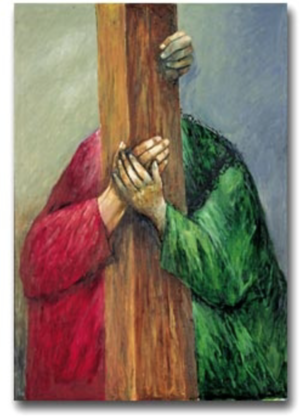
Mary, Mother of Failure,
Where we do not understand
we can hope to know
that we are loved.
Pray for us to have the grace to know
our own stories of failure,
because much was kept from you,
but we know that you were loved.
Amen.
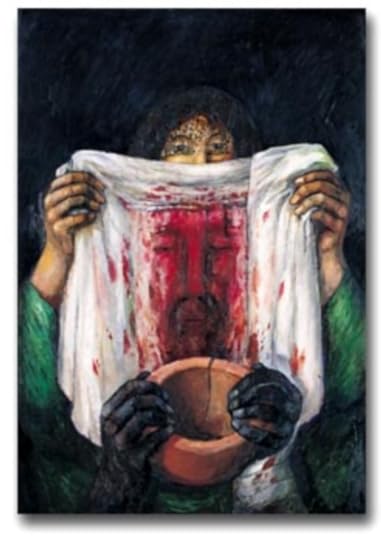
Veronica,
your story is doubted
but valuable.
You did what you could
even though it was very little.
May we do the same
even when we doubt.
Amen.
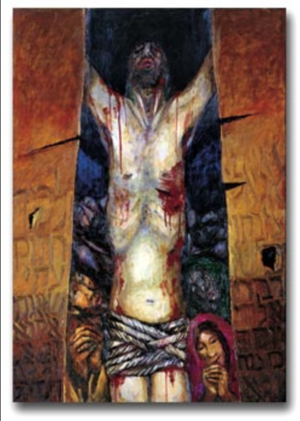
Jesus of the flesh,
Naked you came from the womb
and naked you were made for the cross.
May we always honour
the integrity of the body.
We ask this for no other reason
than our own dignity.
Amen.
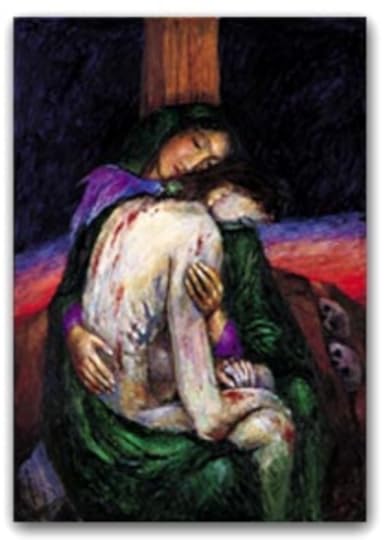
Jesus, our Lord of death,
You have gone where we
have not yet gone.
We honour your death with art.
May we also learn from our fear,
because fear
didn't save you from anything.
Amen.
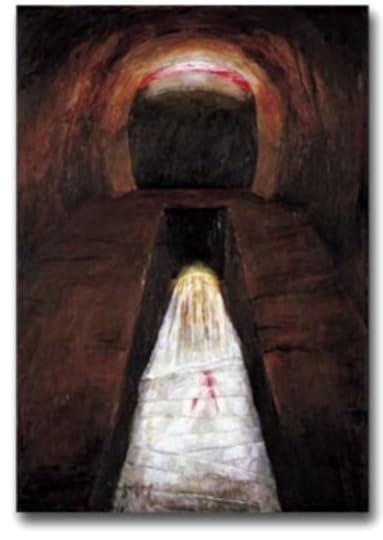
Jesus of the unexpected,
for at least some of your life
this was not how you imagined its end.
Yet even at the end,
you kept steady in your conviction.
Jesus, keep us steady.
Jesus, keep us steady.
Because, Jesus, keep us steady.
Amen.
The collect is a beautiful form for prayer, with five parts. The first is the addressing of God followed by the second part expanding upon the address. The third part names the desire, with the fourth linking the purpose of the desire with the name by which God was addressed at the beginning. It ends with a simple 'amen' or with 'we ask this in the name of...'. All form - like the sonnet, haiku or collect - can, through adherence, aid the one forming in patient unfolding of a thought. Walter Wangerin Jr. writes artfully about the collect (together with other prayer-forms) in his book Whole Prayer.
May 19, 2017
Patient Notes - a prose poem.

I've been speaking at a few nursing conferences this past 12 months, exploring how language and story influence the treated and the treating. The Scottish Centre for Nursing Innovation asked would I write for their journal, so I wrote this prose poem - Patient Notes - for their International Practice Development Journal.
The poem is on their website (link here).
With thanks to Jan Dewing for her innovation.
May 15, 2017
Hello to delight. Hello to hearing from eight-year-olds.
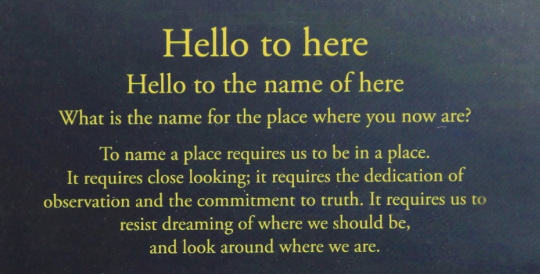
One of the joys of having a website is that folks get in touch. Last week, I got the following email from a teacher in the United States. I asked if I could reprint it and she said of course.
The book In the Shelter is punctuated with "Hello": Hello to here; hello to darkness; hello to the things we cannot change; hello to the need for change. (Actually, originally I was planning on calling the book "Hello".) I love how one idea sparked another idea in this teacher and she - like all good teachers - made it better and made delight with her class of eight and nine year olds.
I am a third grade teacher in Ventura, CA, USA. I shared with my students your "Hello to..." in your book. Their "Hello to..." are so beautiful and poetic! I wanted to share a couple with you and just to let you know the positive difference you are making in the world!
Jack: Hello to the neighbor who never comes out.
Lucas: Hello to the book that was never opened.
Hazel: Hello to kindness that spreads all through.
Bailey: Hello to books the thing filled with story.
Lily: Hello world the home you give us.
Phoebe: Hello to markers coloring free on a blank piece of paper.
Elohra: Hello to calendars that are used to see the date.
Lauren: Hello to curiosity with the outer world to explore.
Hello to storybooks with pages so bright.
Pádraig Ó Tuama's Blog
- Pádraig Ó Tuama's profile
- 414 followers



